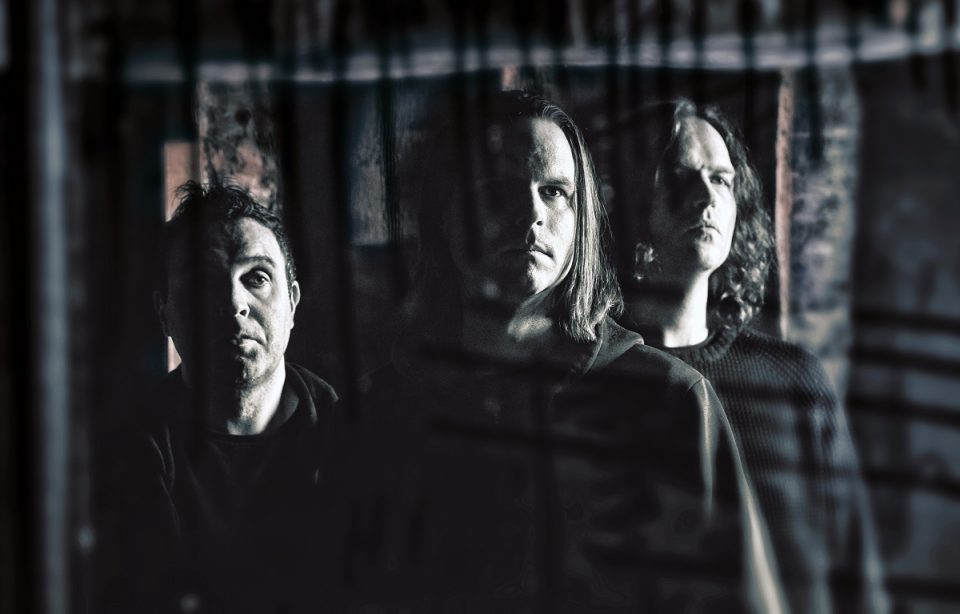God Is An Astronaut: ‘We Never Had A Plan B’
The Irish post-rock frontrunners’ Torsten Kinsella talks about their India debut, writing new material and more
At the start of the Nineties, twin brothers Niels and Torsten Kinsella were giving music a go, considering the alternative involved helping their father in his carpet and wood floor dealership. They created Super AD, an electronic-rock band, but they couldn’t find any record label or reach out to a larger audience.
Torsten says there were too many middlemen, but the Internet was just taking shape for mass usage, with dial-up connections and computers reaching homes. By the time they were 28 years old, the Kinsella brothers’ disenchantment with the typical music distribution space led them to create a new project called God Is An Astronaut as their final, almost certainly parting attempt. Torsten says over the phone, “We decided let’s do something that we would want to do, rather than asking ourselves what do people want? Like not asking, ”˜What does the A&R man want?’”
That’s when everything fell into place for the Irish band, who have released nine albums since 2002, including Epitaph in 2018, which furthers their atmospheric, melancholic but emotive brand of post-rock. Among the world’s go-to bands for arresting instrumental music, God Is An Astronaut now make their way to India to perform at the Bacardi NH7 Weekender in Pune on December 7th. Torsten says there have been a few offers in the past, but nothing that moved beyond a certain point. “They were never able to tell us what equipment would be there. For us, we didn’t want to go to India and put on a second rate show. To me, it has to be no compromise. If we come to India, it’s got to be what we’re doing here in Europe and I didn’t want to go there and let everybody down.”
Looking back at his days that led from Super AD to God Is An Astronaut, Torsten says luck also played a part. What if he the new world of Internet music consumers hadn’t picked up his band’s songs? “This is the frightening thing. We never had a plan B. It was kind of a case of”¦ maybe just gone on to do carpets and floors or something to that effect. Not a particularly happy kind of lifestyle for me,” the guitarist and keyboardist says. He particularly notes that it’s more difficult for musicians with talent today, to earn an opportunity. “I think in general just the way capitalism works, it’s very difficult for musicians to have the money and the exposure that they need to get out there. The music industry as a whole doesn’t generate the kind of money for artists as it should do.”
As for God Is An Astronaut, they’ve been continually building a wider following, but perhaps started seeing more numbers after the release of 2005’s All Is Violent, All Is Bright and their 2008 self-titled album. In four years, they released three albums and an EP. Torsten recalls that time as “risk-free” for putting out material and around when he had a lot to express. He adds, “I was very driven. I still am driven, just a lot more cautious today. We put out a lot of material. I have to say, I look back at my whole discography and I’m not really disappointed with any of it.” Releasing albums with a gap of a few years now, he says is for “financial” reasons, but Epitaph was an exception, considering it was the product of the Kinsella brothers losing their cousin at the young age of seven.
For Torsten, performing every song live is tied to going back to the moments he spent writing them. Audience reaction is often “inconsequential.” He adds, “If I sit down for ”˜Fragile’ and ”˜All Is Violent, All Is Bright,’ I’m thinking ”˜Here’s a crowd favorite for you guys’. I don’t think I’d be doing it justice. I’m much happier when I felt I was in the moment, in my own memories playing these songs for the audience.”
Watching God Is An Astronaut live and listening to their records in one’s own environment are certainly different experiences, and Torsten notes that “there’s a degree of anticipation” in listeners who come to shows. At any of their gigs, the band usually plans their setlist by gauging the environment. “I usually call it on the night of. I say, ”˜Look, there’s a lot of people here’ and it’s a festival. They’re probably wound up and they want to see something heavier. When it’s in that scenario, we’re going to dish out the heavier material. If people are in a very talkative mood and they’re not respecting the quieter stuff, we’ll just give them what they want,” he says. Their current set includes everything from “Seance Room” (off Epitaph) to “Frozen Twilight” (off 2006’s A Moment of Stillness) and “Fragile” (from All Is Violent, All Is Bright), “Helios/Erebus” and “Centralia” off Helios/Erebus.
Off stage and outside of the India debut, there’s not too much downtime, but Torsten says they hope to make the most of it. He says, “It’s a dream for us to even go and play in India, and just to see the culture. I do believe we have a day, so it’ll be nice to see a couple of places if we can.”








